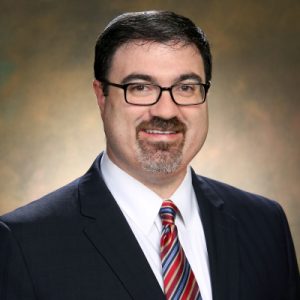Years ago, during a visit to the Cairo museum, I stared into the face of Ramses II. Mummified and frozen in time, his body delicately preserved since the time of his death in 1213 BCE. Tradition tells us that Ramses enslaved and tried to destroy our people. My family was surprised (as were a few tourists) when I blurted out: “look who’s laughing now, Ramses!” Jews have survived Pharaohs and tyrants just like him over millennia yet Ramses’ civilization and those of similar oppressors have faded into the sands of time.
In A Letter in the Scroll, Rabbi Jonathan Sacks explains that the ancient Egyptians were obsessed with death and afterlife expressed by mummies and stone monuments. Power and certainty are some of life’s greatest illusions. The Egyptians dominated and conquered. Then their civilization and its glory disappeared. The pyramids and crypts are memorials only for the individuals who had them constructed. The certainty of a secure “after-life” evaded the Egyptian rulers. Crypts do not teach future generations how to live. The Egyptian mausoleums promised immortality to a few, but the broader society died off because by focusing on preserving the glory of past rulers, they were unprepared for the unwanted, unexpected, and unwelcome changes that inevitably come.
Jewish tradition developed differently and allowed our civilization to live on. Rather than fearing the change and uncertainty that comes with death, our ancestors chose to embrace the uncertainty of certainty as a way to grow in how we choose to live life. Uncertainty calls to us to adjust and transform our understanding of ourselves, our relationship with community, and our sense of responsibility to the world. Uncertainty reminds us that we are tiny compared to the immense Universe and the organizing force that permeates all of creation, which we call Echad, One.
How do we embrace the uncertainty of certainty? The Yamim Noraim, the Days of Awe, call out to us to root ourselves in an honest understanding of our lives as they are. We are encouraged to clearly explore our habits and tendencies. The goal is not to make us feel bad about ourselves. Instead, Judaism acknowledges the courage it takes to see ourselves honestly and views life as a teacher, rather than a means to a celestial end.
The High Holy Days call out to us: with all the worries about the future and the guilt we may have about our past, take time to focus on being present with yourself in the “right now.” Our tradition calls this cheshbon hanefesh – an accounting of our souls. But this is not simply about emphasizing our failures. It’s about an approach to self-reflection that recognizes the good, too. By having unconditional compassion, loving-kindness, and even a sense of humor with ourselves, the insights we gain into our own lives help to humble us. When we have clarity into the complexity of our own souls, we can have empathy and sympathy for others. When we recognize what irritates us about ourselves, we may be more forgiving. When we intentionally consider the ways we can grow and change, we may recognize and respect that the individuals in our lives – our family, friends, and colleagues – are on similar and different paths.
The High Holy Days help to prepare us for the most ordinary of days. Each day and every week, we have moments of joy, comfort, pleasure, and tenderness. Sometimes we have annoyances and frustrations that blind us to or obscure the good. Life can certainly be a struggle. The cheshbon hanefesh – the accounting of our souls – at this season, encourages us to have an awareness of the ways we close our minds and harden our hearts. Through compassionate introspection, we can build trust with ourselves and our own journey and have faith in others and God. We learn from our achievements and our mistakes, and we go on living life to the fullest and helping others.
May we, at this season of return, look back at our lives – this last year, this last month, this last week – and rejoice that in our living, we have the ability, the wisdom, and the consciousness to boldly go forward in our lives with more compassion towards ourselves and others. In this way, we choose to live each and every day with the values we want to pass on to future generations.




